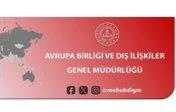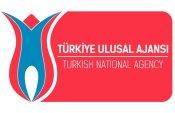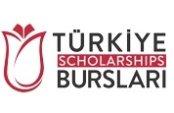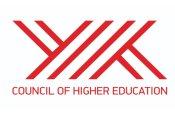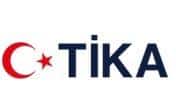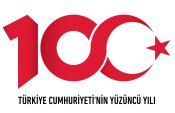OECD
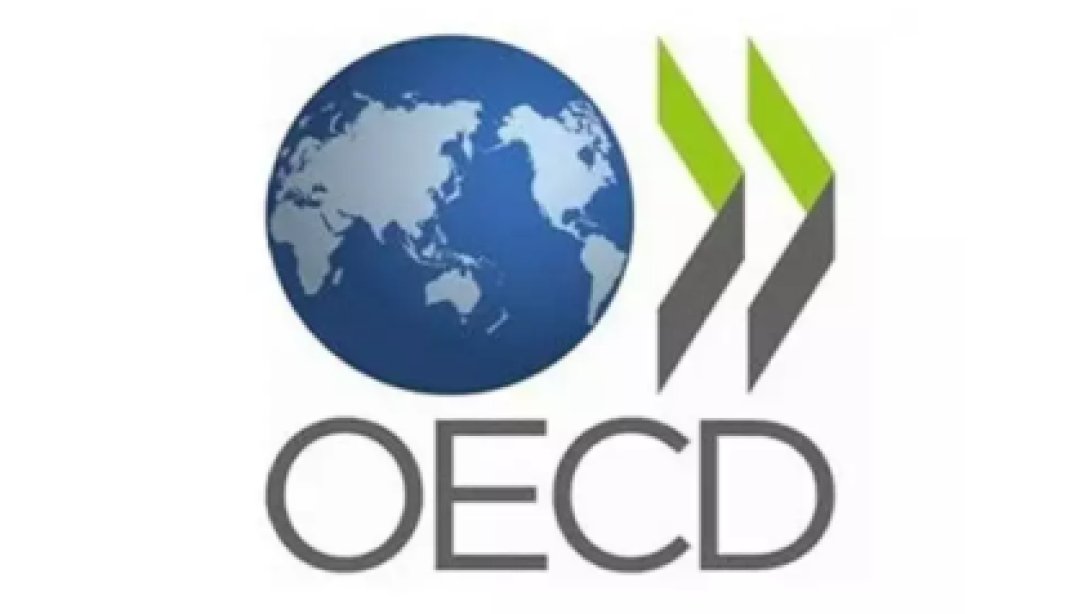
ORGANISATION FOR ECONOMIC CO-OPERATION AND DEVELOPMENT EDUCATIONAL ACTIVITIES ATTENDED BY OUR MINISTRY
To follow closely the changes in the field of education in the world and to reflect these changes in our education system, our Ministry contributes and participates in the following studies within the scope of the Organisation for Economic Co-operation and Development (OECD):
- Education Policy Committee (EDPC) Country Representatives,
- Centre for Educational Research and Innovation Governing Board (CERI)
- Programme for International Student Assessment (PISA)
- Programme for Teaching and Learning International Survey (TALIS)
- TALIS Starting Strong
- Indicators of Education Systems (INES)
o INES Working Party (WP)
o INES Network for the Collection and Adjudication of System-Level Descriptive Information on Educational Structures, Policies and Practices (NESLI)
o INES Network on Labour Market, Economic and Social Outcomes of Learning (LSO)
A. EDUCATION POLICY COMMITTEE (EDPC)
The Education Policies Committee is the highest body of the pyramid created in the new vertical structure of OECD education bodies, which was launched in 2006. The EDPC meetings, which also hold meetings at the level of Education Ministers, are attended by representatives of all member states and representatives of observer countries and the European Union.
The Education Policies Committee (EDPC), where all strategic decisions regarding education are taken and plans are made, are carried out on behalf of our country with the representation of the Directorate General of European Union and Foreign Relations.
The committee meets twice a year (in April and November), and at the meeting, developments regarding the programs carried out are presented, the resulting outputs are evaluated, and the medium-term strategy is approved. Studies carried out under the initiative of the OECD Education Policy Committee can be grouped under 5 headings:
1. Developing Links of Lifelong Learning with Other Socio-economic Policies
a. Developing Policies on Early Childhood Education and Care
b. Development and Measurement of Adult Competencies
c. Increasing the economic impact of human and labor force
2. Analyzing and Developing Educational Policies and Practices
a. Country National Education Policy Reviews
3. Promoting Quality Education
a. Restructuring of Teachers' Careers and Studies
b. Developing Leadership Capacity in Schools
4. Reevaluation of Higher Education in the Perspective of the Global Economy
a. Analysis of National Higher Education Policies
5. Social Cohesion Through Education
a. Increasing Equal Opportunity and Benefits in Education
b. Attracting and Developing Successful Individuals to the Teaching Profession
One of the works of the Education Policy Committee is "Educational Policy Reform Dialogues", a learning network in the field of education planning, policy, and strategy. Within the scope of Education Policy Reform Dialogues, meetings are held with a different education policy theme every year with the participation of the high-level representatives of the Ministries of Education of the member countries.
In addition, the "Education Policy Outlook Report" is prepared every year, in which the education policies of the member countries are examined to form the basis for the dialogues. The purpose of the report is to identify solutions to countries' common challenges, explore how countries use available data to develop their policies and what they learn during these processes, and develop policy principles based on comparative international evidence.
B. CENTRE FOR EDUCATIONAL RESEARCH AND INNOVATION GOVERNING BOARD (CERI)
Centre for Educational Research and Innovation (CERI) was established by the OECD Council in 1968. The work is guided by the Governing Board, which consists of representatives from 34 member countries.
CERI Governing Board membership is carried out on behalf of our country with the representation of our General Directorate. The Board of Directors convenes twice a year (in April and November). CERI monitors the quality of programs, validates the mid-term strategy developed by the EDPC, and evaluates the resulting outputs.
CERI encourages international dialogue between OECD countries on education and carries out studies for this purpose. CERI is an extremely important center where discussions are held and information is compiled on the new orientations of developed countries in their education systems. This center has been conducting educational research and educational innovation studies for OECD countries for nearly 40 years. Within the framework of these activities, new education policies and better links between research and practice are encouraged; The active participation of researchers, practitioners, and government officials in the field of education in international education debates is ensured.
The general objectives of the Centre for Educational Research and Innovationare expressed as follows:
- To examine existing and emerging education and training issues and their links to other policy areas; conducting research, developing innovations and key indicators;
- To develop forward-looking harmonious education and training approaches in the context of cultural, social, and economic changes at national and international levels;
- To provide opportunities for practical cooperation between member states and, where appropriate, with non-member states on common problems related to education, to exchange views and seek solutions to problems.
Currently, ongoing CERI activities/projects are grouped under 7 headings:
- Innovation Strategy in Education and Training
- Innovative Learning Environments
- Education and Social Progress
- Management of Complex Education Systems
- Innovative Teaching for Effective Learning
- Trends Shaping Education
- Open Educational Resources
C. PROGRAMME FOR INTERNATIONAL STUDENT ASSESSMENT (PISA)
It aims to measure the degree to which students who have completed compulsory education in OECD member countries and other participating countries have the basic knowledge and skills necessary to take their place in modern society.
Although PISA studies started in 2000, it focuses on one of the fields of reading, mathematics, and science, respectively, every three years. The target audience of the PISA research is 15-year-old students enrolled in formal education in the 7th grade and above. Our country has been participating in the PISA survey since 2003.
Studies on PISA in our Ministry are carried out by the Directorate General of Assessment, Evaluation and Examination Services under the coordination of DirectorateGeneral of European Union and Foreign Relations.
The scores obtained from our country's PISA studies are as follows:
|
|
MATHEMATICS |
READING |
SCIENCE |
|
PISA 2003 (41 Participating Countries) |
423 Score Türkiye 33. |
441 Score Türkiye 33. |
434 Score Türkiye 32. |
|
PISA 2006 (57 Participating Countries) |
424 Score Türkiye 43. |
447 Score Türkiye 37. |
424 Score Türkiye 47. |
|
PISA 2009 (65 Participating Countries) |
445 Score Türkiye 41. |
464 Score Türkiye 39. |
454 Score Türkiye 42. |
|
PISA 2012 (65 Participating Countries) |
448 Score Türkiye 44. |
475 Score Türkiye 42. |
463 Score Türkiye 43. |
|
PISA 2015 (72 Participating Countries) |
420 Score Türkiye 50. |
428 Score Türkiye 50. |
425 Score Türkiye 54. |
|
PISA 2018 (79 Participating Countries) |
454 Score Türkiye 42. |
466 Score Türkiye 40. |
468 Score Türkiye 39. |
PROGRAMME FOR TEACHING AND LEARNING INTERNATIONAL SURVEY (TALIS)
Another OECD program in which our Ministry participates is the Programme for Teaching and Learning International Survey (TALIS).
TALIS is a five-year study on the working conditions and educational environments of school administrators and teachers in schools. Our country participated in the research (TALIS) for the first time in 2008 and finally participates in the 2020-2022 interim cycle.
TALIS studies are carried out under the coordination of the Directorate General of European Union and Foreign Relations and the responsibility of the Directorate General of Teacher Training and Development.
In the research, it is tried to learn the working conditions and educational environments in schools with questionnaires for the administrators of primary schools and branch teachers working in the 6th, 7th, and 8th grades.
D. TALIS STARTING STRONG
TALIS Starting Strong, which is a study of the OECD on early childhood education, aims to evaluate the personnel working in pre-school institutions in terms of pedagogical knowledge, experience and experiences, attitudes, and working conditions, and our country was included in this study in 2015.
The Starting Strong survey is carried out under the coordination of theDirectorate General of European Union and Foreign Relations and the responsibility of the Directorate General of Basic Education.
E. INDICATORS OF EDUCATION SYSTEMS (INES)
The purpose of the Organisation for Economic Co-operation and Development (OECD) Indicators of Education Systems (INES), which includes our country, is to create international comparative education indicators, to compare the education system performances of countries with the performances of other countries, and thus to enable better monitoring and evaluation of education systems.
Within the scope of INES studies, "Working Party (WP)" and "Network for the Collection and Adjudication of System-Level Descriptive Information on Educational Structures, Policies and Practices (NESLI)" and "Network on Labour Market, Economic and Social Outcomes of Learning (LSO)" are carried out by the Strategy Development Department of our Ministry.




